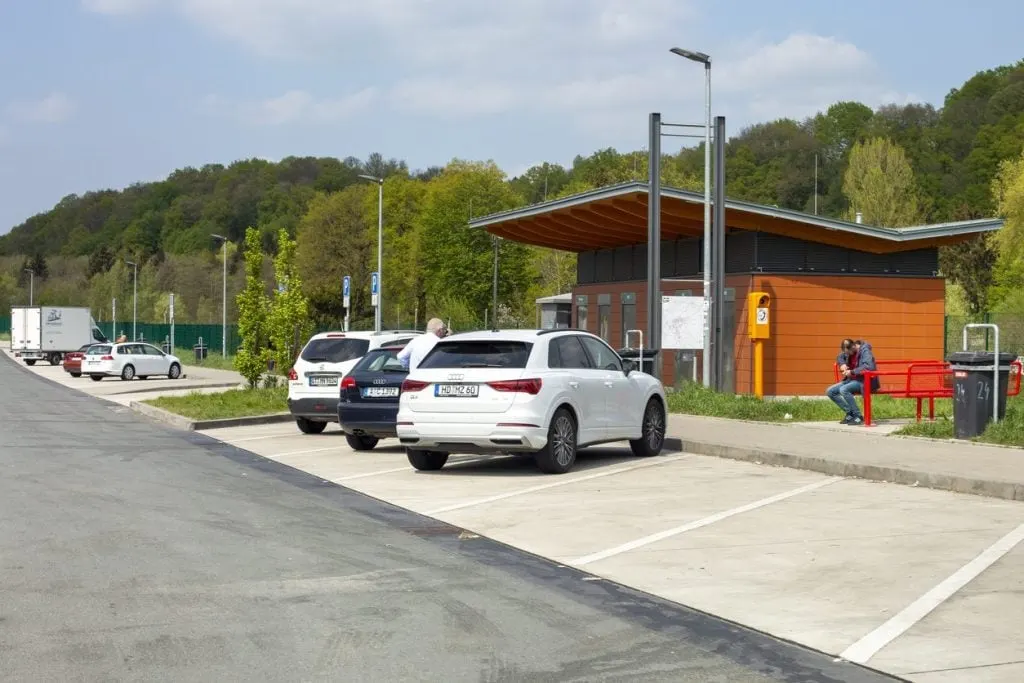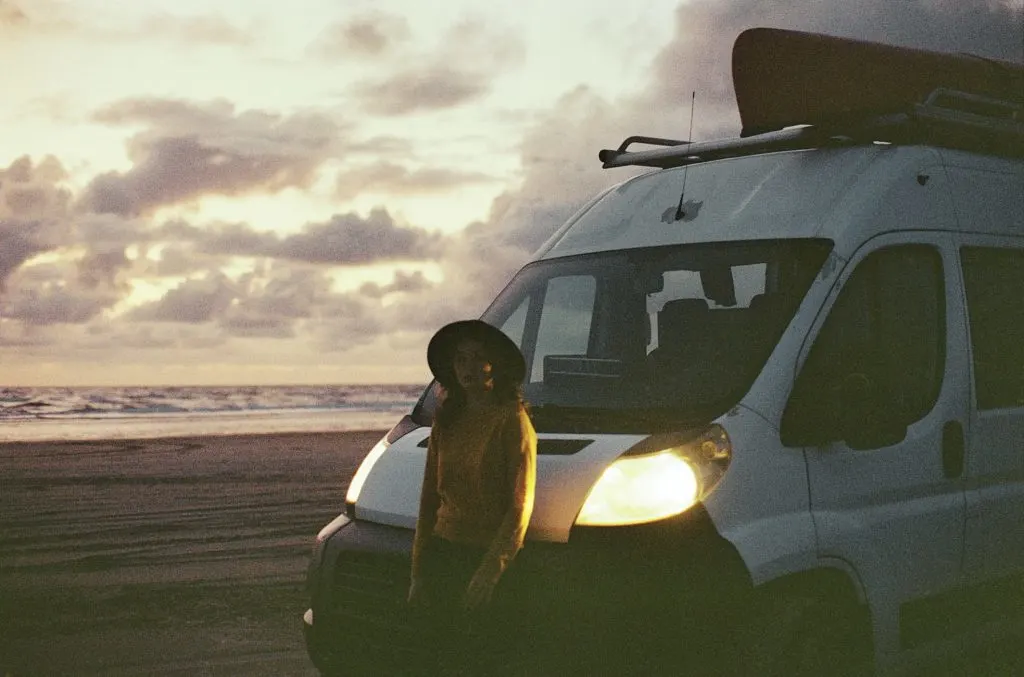So you’ve decided to embrace the RV lifestyle? Buckle up, because it’s one heck of a ride. My wife and I have been rolling around in our 42-foot Alliance fifth wheel—yeah, it’s basically a mansion on wheels—and we’ve learned a thing or two about finding places to park this beast legally overnight.
Trust me, it’s not as simple as pulling over wherever you please. But don’t sweat it; I’m here to share the lowdown on where you can catch some shut-eye without getting into hot water.

Overnight Parking Options
Let’s kick things off with the classic overnight parking spots that every seasoned RVer knows about. These places have saved our butts more times than I can count. First up, Walmart parking lots are like the unofficial campgrounds of America. Many of them allow overnight parking, but it’s not a guaranteed thing.
Some locations have nixed it due to local laws or because previous travelers left a mess. We always make it a point to roll in and ask the store manager for permission. A little courtesy goes a long way, and buying a few items doesn’t hurt either. It’s harder for them to say no when you’re a paying customer.
Rest areas are another option, serving as the pit stops of the highway. They’re designed for weary travelers to take a break, but not all are cool with overnight stays. Some states are chill and let you park overnight, while others kick you out after a few hours.

We’ve had nights where we woke up to a beautiful sunrise over the interstate and others where a security guard knocked on our door at 2 a.m. Always check the signs when you pull in to avoid any surprises.
Truck stops like Flying J, Pilot, and Love’s are lifesavers, especially when you’re in a pinch. They cater primarily to truckers, but RVers can usually find a spot too. Amenities like showers, laundry facilities, and even dog parks make them convenient. Just remember that these places are essential for truckers on tight schedules, so be respectful. Park in designated RV spots if they have them, and avoid hogging space in the truck lanes.
Feeling a bit adventurous?
Casino parking lots often allow free overnight parking for RVs. Some even offer hookups for a fee. We’ve spent nights surrounded by neon lights and the distant sound of slot machines. If you’re into gambling, it’s a short walk to the action. Just make sure to check in with security, as some places require you to register your rig.

And then there’s Cracker Barrel—a hidden gem for RVers. Many locations have a few RV-friendly parking spots. It’s like they know we can’t resist their biscuits and gravy. We usually call ahead to confirm, but we’ve never been turned away.
Plus, starting your day with a hearty breakfast is always a win in my book.
Boondocking on Federal Land
If you’re all about that off-grid life, boondocking on federal land is where it’s at. There’s nothing like parking your RV in the middle of nowhere and soaking up the serenity. Bureau of Land Management (BLM) lands, primarily in the western U.S., offer vast areas where you can park for free. We’ve found spots where it’s just us, the stars, and maybe a curious deer.
The rules are generally simple: stay up to 14 days, don’t trash the place, and be mindful of fire restrictions. It’s rustic, raw, and absolutely freeing.
National forests offer a similar vibe but often come with more trees—go figure. Dispersed camping in these areas allows you to set up camp away from developed sites. We’ve woken up to the sound of birds chirping and streams flowing nearby. Just make sure you’re not in a restricted area or near any sensitive habitats.

Wildlife Management Areas (WMAs) are primarily for conservation and hunting, but some allow overnight stays. It’s a bit more niche, but if you’re into bird watching or just want a quiet place to park, it’s worth checking out.
Army Corps of Engineers (COE) sites often have campgrounds near lakes and rivers they’ve managed. The fees are usually low, and the facilities are well-maintained. We love these spots for the water access—kayaking, fishing, or just chilling by the shore.
Unique Overnight RV Sleeping Options
Looking to mix things up? Unique options like Harvest Hosts and Boondockers Welcome offer more than just a place to park—they’re experiences in themselves. Harvest Hosts, for an annual membership fee, gives you access to a network of over 1,000 wineries, breweries, farms, and attractions that welcome RVers for overnight stays.

We’ve parked next to vineyards, orchards, and even alpaca farms. No joke, we once woke up to an alpaca staring right into our window. The only expectation is that you support the business by making a purchase, which we’re more than happy to do.
Wine tasting before bed? Yes, please.
Boondockers Welcome connects you with private property owners who have space for RVs. It’s like staying with friends you haven’t met yet. The community is super welcoming, and it’s a great way to meet locals and get insider tips on the area.
We’ve stayed on ranches, suburban driveways, and even a backyard overlooking a river.
Hipcamp is another option, acting like the Airbnb for outdoor stays. You can find private landowners offering unique spots to camp, from secluded forest clearings to open fields under the stars. Some listings offer amenities like campfires, picnic tables, or even outdoor showers.
We’ve used Hipcamp to find last-minute spots when traditional campgrounds were booked up.
And let’s not forget moochdocking. Got friends or family with some extra driveway space? Don’t underestimate the power of moochdocking. It’s free, familiar, and you might even get a home-cooked meal out of it.

Just be sure to check local ordinances to avoid any homeowner association drama.
Standard Paid RV Parks and Campgrounds (Well, duh…)
Sometimes you just want the comforts of full hookups and amenities, and that’s where traditional RV parks and campgrounds come in. Private RV parks range from basic to luxury resorts. Some offer pools, hot tubs, game rooms, and even scheduled activities. We once stayed at a park that had a mini-golf course and live music on weekends. It’s like a mini-vacation within your trip.
State parks are some of our favorite places to stay. They’re usually situated in scenic areas with plenty of outdoor activities like hiking, biking, and kayaking. The sites are often spacious, and the rates are reasonable. Just remember that reservations can be essential, especially during peak season.
Staying inside a national park is an experience like no other. Waking up with a view of the Grand Canyon or the mountains of Yosemite is priceless. That said, spots are limited, and our big rig doesn’t fit in all campgrounds. We’ve learned to check the maximum RV lengths before planning our stay.
Kampgrounds of America (KOA) offer reliable facilities and are found all over the country. They’re a solid option when you want a hassle-free stay. Plus, they often have perks like pancake breakfasts and movie nights.
Places Where It May Be Illegal to Sleep in Your RV
Now, let’s talk about the places you should avoid unless you enjoy 3 a.m. wake-up calls from the local authorities. City streets often have ordinances that prohibit sleeping in vehicles parked on public roads.
This is especially true in urban areas where homelessness is a concern. We’ve heard horror stories of RVers getting hefty fines or being towed.
Parking in residential neighborhoods might seem harmless, but homeowners can be quick to report unfamiliar vehicles. Plus, some neighborhoods have strict homeowner association rules against it.
Private property without permission is a big no-no. Don’t assume that an empty lot or a quiet field is fair game. If it’s private property, you need permission.
Not all parking lots are RV-friendly. Some shopping centers, malls, and even certain Walmarts have signs explicitly banning overnight parking.
We once made the mistake of parking in a supermarket lot, only to be woken up by security telling us to leave.
Beaches and public parks are usually off-limits for overnight parking unless specifically designated. And let’s be honest, getting stuck in sand is not the adventure you’re looking for.
What Happens If You Get Caught Sleeping in Your RV in an Illegal Spot
So, what happens if you get caught sleeping in your RV where you’re not supposed to? If you’re lucky, you might just get a ticket. Fines can range from a slap on the wrist to several hundred dollars—money better spent on fuel or fun experiences.
Getting your RV towed is a nightmare. Not only is it expensive to get it back, but you also have to figure out where they’ve taken it. Navigating an impound lot with a giant fifth wheel is not on my bucket list.
Being woken up by flashing lights and a knock on the door is unsettling, to say the least.
Officers will usually ask you to move along, but it’s not exactly the restful night you were hoping for. Repeated offenses can lead to more serious consequences, including court appearances. Ain’t nobody got time for that. Parking in unauthorized areas can also put you at risk of theft or vandalism. If an area isn’t designated for overnight stays, there’s probably a reason.
Sleeping Legally In Your RV is Top Priority
Finding legal places to sleep in your RV isn’t rocket science, but it does require some planning and common sense. Over time, we’ve learned to balance spontaneity with a bit of research. There are tons of resources available—apps, websites, and fellow RVers are all great sources of information.
At the end of the day, the freedom of the open road is what it’s all about. The ability to pick up and go wherever the wind takes you is both exhilarating and liberating. Just make sure you’re parked somewhere legal when you decide to call it a night.

We’ll Help You Find the Best Free Camping in the USA
You should give it a try!
As a matter of fact, these free campsites are yours to enjoy. Every time you pay federal taxes, you’re contributing to these lands.
Become a FREE CAMPING INSIDER and join the 100,000 campers who love to score the best site!
We’ll send you the 50 Best Free Campsites in the USA (one per state). Access the list by submitting your email below:
Small towns often have parks/playfields where one can park overnight. Just ask the police. Flag down a patrol car, or find the police station. They all know where to park free overnight.
Just remember that some towns have ordinances against overnight sleeping in an RV.
Also check out ALLSTAYS Camp & RV! You can access online, but it’s easier and better to get the app. It was $10 when we got it ~ 7 (?) years ago, and it continually updates. Coast to coast, one of the best tools we’ve had. Aloha 🙂